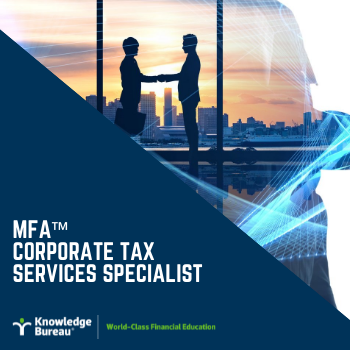Last updated: February 16 2022
Update on Family Business Transfers

Evelyn Jacks
What is the current word on using the Lifetime Capital Gains Exemption when you transfer the family farming, fishing or small business corporation to your child or grandchild? Is this possible or not? There is good reason to feel unsure, as the tax law around this lifecycle event has not yet been clarified, 9 months after Royal Assent was give to legislation intended to change it. Here’s the background to this story:
You may recall the rejoicing of the business community when a private members’ Bill C-208 was passed into law June 29 of 2021. The government begrudgingly recognized the Royal Assent but promised to enact new legislation to limit some of the provisions. New legislation was to apply to the later of November 1, 2021 or the date of publication of new first draft legislation, which had not yet appeared well into the first quarter of 2022.
The Canadian Federation of Independent Business has summarized what has changed, in a handy chart:
|
ITA |
Before Bill C-208 |
After Bill C-208 |
|---|---|---|
|
Section 55 |
Siblings were not allowed to convert taxable capital gains into a tax-free intercorporate dividend. |
Siblings are now allowed to convert taxable capital gains into a tax-free intercorporate dividend. |
|
Section 84.1 |
Parents selling business shares to an arm’s length (unrelated) corporation were able to use the Lifetime Capital Gains Exemption to reduce their income tax on the resulting capital gains on the transaction Parents selling shares to a non-arm’s length (related) corporation, such as a child’s corporation, would have to receive dividends, be taxed at a higher rate, and would not be able to absorb this higher rate through the LCGE. |
Parents selling shares to a non-arm’s length (related) corporation can use the Lifetime Capital Gains Exemption to reduce their income tax on the resulting capital gains on the transaction as long as they meet certain criteria. |
Bill C-208, in other words, ensured that parents could use their Lifetime Capital Gains Exemption (LCGE) and capital gains treatment on the transfer of the family business to their children or grandchildren, who in turn, could corporately finance the acquisition.
We asked Larry H. Frostiak, FCPA, FCA, CFP, TEP, Managing Partner with Frostiak & Leslie Chartered Professional Accountants Inc. and Faculty Member of Knowledg e Bureau, to comment on this last fall. He explained the following conditions must have been in place to take advantage of this opportunity:
e Bureau, to comment on this last fall. He explained the following conditions must have been in place to take advantage of this opportunity:
- the exchanged shares are QSBC shares or shares of a family farm or fishing corporation
- the purchaser corporation is controlled by one or more children or grandchildren (aged 18 or older) of the vending taxpayer, and
- the purchaser corporation does not dispose of the exchanged shares within 60 months of the purchase
Finance Canada and CRA were not happy with this Bill, because they felt it was too loosely written and could allow for “surplus stripping” (where money is extracted out of the corporation as capital gains instead of dividends in cases where control of the corporation had not really passed) and other tax avoidance transactions.
Instead, the government wants to extend the capital gains treatment only to legitimate transactions and therefore intends to require the following:
- a transfer of legal and factual control of the corporation carrying on the business from the parent to their child or grandchild;
- a level of ownership in the corporation that the parent can maintain for a reasonable time after the sale of shares to the child’s corporation;
- the timeline for the parent to transition their involvement in the business to the next generation, and that generation’s level of involvement after the transfer. (This is generally taken to mean that they should be actively and continuously involved in the business that they are acquiring).
These draft legislative amendments will be subject to public consultation, and the final amendments will be introduced in a legislative Bill to be in force the later of:
- November 1, 2021; and
- the date of publication of the final draft of the Bill
Tax planning for family business owners who are ready for business succession to family members must always be carefully done. Currently there appears to be a window in which more advantageous tax treatment is possible.
Additional Educational Resources: Check out the following Professional Certificate Course from Knowledge Bureau: Tax Planning for Corporate Owner-Managers While this course provides professional training to tax specialists, owner-managers may find this knowledge will help them have better conversations with their accountants, lawyers and financial advisors and thereby make more tax-astute financial decisions.

